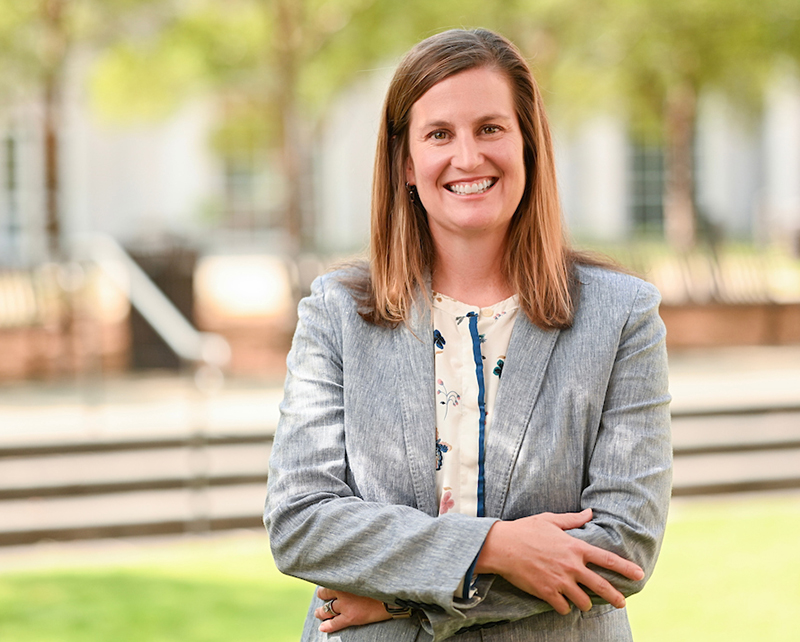
Trailers packed with supplies for residents displaced by a tornado filled shopping
center parking lots in Tuscaloosa in April 2011. The relief efforts ran up against
a problem – retailers and transportation companies wanted their spaces and equipment
back.
“Those people said on Monday morning, ‘We want to go back to work,’” said Glenn Richey, Eminent Scholar in Supply Chain Management at the Harbert College of Business. “I was sympathetic to that desire, but the supplies in those trailers and parking
lot were for people who had their homes destroyed. People who had no water and only
the clothes on their backs. What do you do? Do you go back to business as usual, or
do you step up and do what you can to help the community?”
Richey, who lived in Tuscaloosa at the time of the EF-4 twister that killed 64 and
injured nearly 1,500, was among the hundreds who provided immediate disaster relief.
He also weathered Hurricanes Elena and Frederic, lived in Xenia, Ohio, during the
1974 Super Outbreak tornado, and also in Oklahoma City during the EF-5 tornado that
struck the nearby town of Moore, Okla., in 2010. He’s seen his share of natural disasters,
and he’s seen his share of botched relief efforts, too.
His latest paper, “Disaster Resilience Through Short-Term Collaboration,” suggests the development of a governing framework that bridges the communication
and management gap between public and private entities in the wake of disasters and
gives relief efforts one unified voice instead of multiple, disjointed voices. As
the Gulf States move toward the heart of another hurricane season, Richey insists
that disaster relief plans be made proactively.
But how and under what framework?
“The sharing of information and the building of a body that works together to manage
these situations, whether they are natural or man-made disasters, is the most important,”
said Richey, whose paper was accepted by the Journal of Business Logistics.
Richey called on federal agencies including FEMA and Homeland Security, state and
local agencies, and private businesses to come together.
The paper suggests that the public and private entities pre-determine:
- How and what resources should be shared
- What information should be shared
- What physical resources should be shared
- How people should be utilized
- How their respective values and goals can be connected
“We need to ensure that everyone is focused on one outcome, understand the roles of
each group and build their goals together so that they can achieve the protection
of human life,” Richey said. “If a hurricane hits Bayou La Batre (Ala.), you’ve got
to have the businesses in that community willing to cooperate with the government
and share the information that they have, and have the government share important
information as well.”
But who manages this group? “Because it’s such a disparate group of individuals, it
has to be a board of people that doesn’t already exist and can be altered and enhanced
quickly,” Richey said.
Then there’s another group – volunteers. Richey pondered how volunteer helpers could
best be utilized. “How do you organize the bayou men on airboats in Louisiana?” he
asked. “What about the people who want to help firefighters in California? Or short-term
employees hired to clean up Gulf Shores during the Deep Water Horizon disaster? How
do you develop trust and leadership quickly?”
A hurricane has struck the Gulf Coast. Where do the relief supplies go? Who will disperse
them and where? How can businesses and public agencies work together?
“There’s nothing worse in one of these events than having merchants in the room and
having someone from Homeland Security or FEMA say, ‘We don’t do it that way,’” Richey
said. “Then the government wants to take a retail facility for three months and you’ve
got managers saying, ‘I’m not going to make my quota.’ The end of this is essentially
a call to arms for businesses and government to get together.”

 Degrees & Programs
Degrees & Programs
 Faculty & Staff
Faculty & Staff
 Career Development
Career Development
 Recruiters & Industry
Recruiters & Industry



